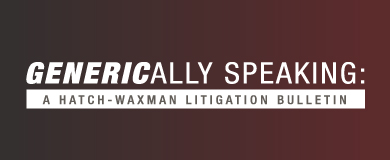- Acumen Powered by Robins Kaplan LLP®
- Affirmative Recovery
- American Indian Law and Policy
- Antitrust and Trade Regulation
- Appellate Advocacy and Guidance
- Business Litigation
- Civil Rights and Police Misconduct
- Class Action Litigation
- Commercial/Project Finance and Real Estate
- Corporate Governance and Special Situations
- Corporate Restructuring and Bankruptcy
- Domestic and International Arbitration
- Entertainment and Media Litigation
- Health Care Litigation
- Insurance and Catastrophic Loss
- Intellectual Property and Technology Litigation
- Mass Tort Attorneys
- Medical Malpractice Attorneys
- Personal Injury Attorneys
- Telecommunications Litigation and Arbitration
- Wealth Planning, Administration, and Fiduciary Disputes
Acumen Powered by Robins Kaplan LLP®
Ediscovery, Applied Science and Economics, and Litigation Support Solutions
-
April 15, 2024Robins Kaplan Named to 2024 BTI Client Service A-Team
-
April 9, 2024Robins Kaplan LLP Files Complaint Against Social Media Giants Meta, Snap, TikTok on Behalf of Spirit Lake Nation, Menominee Indian Tribe of Wisconsin
-
April 8, 2024Tara Sutton, Emily Tremblay Shortlisted for Euromoney’s Women in Business Law Awards
-
April 24, 2024IP Leadership Executive Summit
-
April 24, 2024IP Odyssey: Navigating the Latest Developments in Intellectual Property Law
-
April 30, 2024Navigating Generational Dynamics
-
March 2024e-Commerce: Pitfalls and Protections
-
March 22, 2024‘In re Cellect’:
-
March 14, 2024How Many Cases Have You Tried to a Verdict?
-
September 16, 2022Uber Company Systems Compromised by Widespread Cyber Hack
-
September 15, 2022US Averts Rail Workers Strike With Last-Minute Tentative Deal
-
September 14, 2022Hotter-Than-Expected August Inflation Prompts Massive Wall Street Selloff
Find additional firm contact information for press inquiries.
Find resources to help navigate legal and business complexities.
Bayer Intellectual Property GmbH v. Warner Chilcott Co.
Words of degree—i.e., “high,” “low,” “satisfactory” and “reliable”—found within a disputed claim term rendered that term invalid as indefinite.
Summer 2015

Case Name: Bayer Intellectual Property GmbH v. Warner Chilcott Co., LLC, 12-1032-GMS, 2015 U.S. Dist. LEXIS 52061 (D. Del. Apr. 21, 2015) (Sleet, J.)
Drug Product and Patent(s)-in-Suit: Lo Loestrin® Fe (norethindrone acetate / ethinyl estradiol / ferrous fumarate); U.S. Pat. No. 5,980,940 ("the '940 patent")
Nature of the Case and Issue(s) Presented: The '940 patent claims an oral contraception regimen in which two hormones are taken at set time points throughout the dosing schedule. The parties sought construction of the claim term, “high contraceptive reliability, low incidence of follicular development, and satisfactory cycle control, with reliable avoidance of intracyclic menstrual bleeding and undesirable side-effects.” In its claim construction order, the court found that it was unable to construe the disputed phrase because the words of degree—i.e., "high," "low," "satisfactory" and "reliable"—had no standards against which to draw comparisons, and the patent offered no suggestions for how to measure these criteria. Thus, Warner Chilcott, following the court’s guidance, moved for summary judgment of indefiniteness. The court granted the motion and found the asserted claims invalid as indefinite.
Why Defendant Prevailed: The intrinsic record failed to assign meaning to the words of degree in the disputed term. Moreover, Bayer did not seek reconsideration of the court’s claim construction ruling. Nevertheless, Bayer argued that the disputed term was not indefinite because one skilled in the art would understand—with reasonable certainty—its meaning, as demonstrated by extrinsic evidence. Bayer relied on dozens of pieces of extrinsic evidence, as well as a supplemental declaration from its expert, Dr. Lee Shulman, showing that the words of degree in the disputed claim term simply indicate that the claimed invention performs comparably to other oral contraceptives on the market.
The court rejected this evidence on various grounds. Firstly, it had given counsel for Bayer an opportunity during the Markman hearing to explain why extrinsic evidence was necessary to construe the terms, whereas Bayer conceded that the evidence was merely for “context.” Secondly, during a subsequent teleconference, the court explained that additional extrinsic evidence would not be considered. “Bayer has flooded the court with never-before-seen evidence and expert testimony, supporting a new, ‘clearly established’ meaning of the disputed term. Bayer’s efforts to reargue claim construction with entirely new evidence at this time is improper.” Finally, the court found that the proposed construction would conflict with the intrinsic record of the ’940 patent. “Whereas Bayer pushes for a construction that essentially replaces all of the words of degree in the disputed term with ‘comparable,’ the specification and prosecution history state repeatedly that the patented invention performed superior to prior art products on the market.” Bayer’s proposed construction also cannot stand on its own because the word “comparable” requires a frame of reference.
Related Publications
Related News
If you are interested in having us represent you, you should call us so we can determine whether the matter is one for which we are willing or able to accept professional responsibility. We will not make this determination by e-mail communication. The telephone numbers and addresses for our offices are listed on this page. We reserve the right to decline any representation. We may be required to decline representation if it would create a conflict of interest with our other clients.
By accepting these terms, you are confirming that you have read and understood this important notice.
